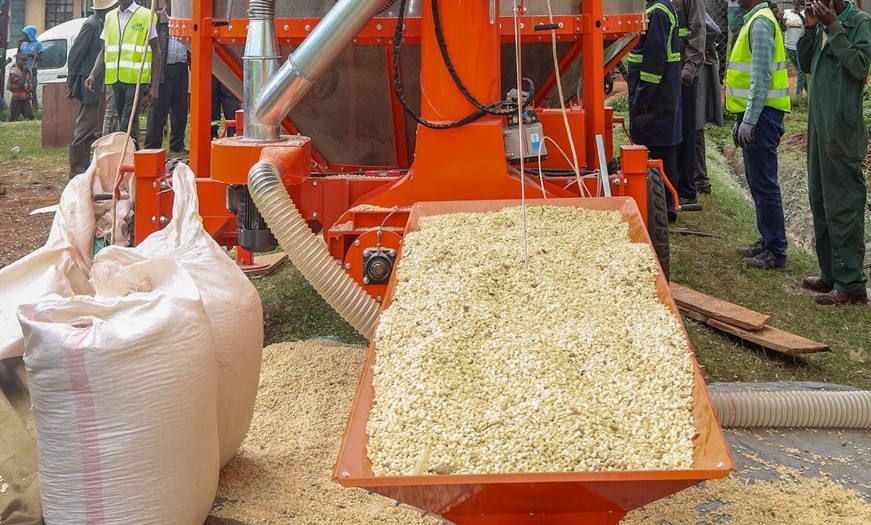The National Government has distributed Nandi County with 10 mobile grain dryers to assist farmers in mitigating post-harvest losses.
Speaking during the launch at Mosoriot NCPB, Agriculture Cabinet Secretary Mithika Linturi said the equipment is significant in realizing the government’s vision of improving grain value chains and achieving 100 percent food security.
“Our main mission is to curb post-harvest losses mainly caused by poor storage, inadequate drying facilities and poor weather conditions during harvesting time,” he said.
Linturi said that each dryer has the capacity to dry 14 tons of maize in two hours, adding that it will only cost a farmer Kes 70 to dry a 90kg bag of maize.
Further, the CS said that despite the agriculture sector's crucial role in our Country, post-harvest loss management has been a significant challenge, with an estimated loss of 30 percent of harvested crops.
Did you read this?
He stated that the government has also put up a Warehouse Receipt System that allows farmers to hold their produce in certified 17 NCPB Deport warehouses across the Country.
Additionally, he said the system will ensure accountability and efficiency as the produce can be tested, cleaned, graded, and stored with the commodity's owners receiving proof of ownership before the sale.
“The Warehouse Receipt System will help our farmers to store their maize safely as they wait for the maize purchase price to be in their favour before selling the same hence avoiding middle men,” he said
On his part, Nandi Governor Stephen Sang said the fertilizer subsidies increased agricultural production thus the grain dryers will go a long way in helping farmers reduce post-harvest losses.
“Farmers should take advantage of the favourable drying prices to dry their maize both for consumption and commercial purposes. The grain dryers are mobile just a phone call away. In 3 hours it can remove moisture from 26 percent to 13 percent,” he said
He also called upon farmers to capitalize on the Warehouse receipt system to secure storage of their maize as they wait for the appropriate time to sell when the prices are favorable.









